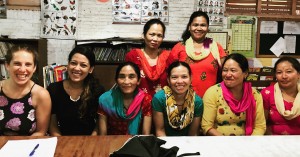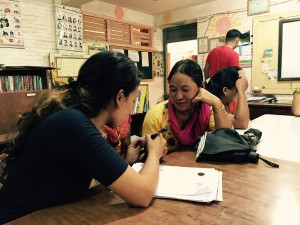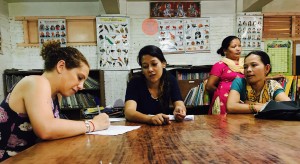We all grew up with the notion of the “American Dream”, the upward mobility trend that countries like the US experienced back in the 40’s and up to the 80’s. The American Dream is based on the idea that family background does not determine a child’s chances to success. That a child’s social and economics opportunities do not depend upon his parent’s income or social status. On the contrary, the American Dream translates into equality of opportunities for prosperity and success, and therefore a real chance for children to experience greater levels of wellbeing than those of their parents.
The American Dream seems to have been fading away for some time now. People in my generation think it is almost impossible to even resemble the way of life our parents provided us, and do not even think about being able to give their children a similar standard of living that the one we had as kids.
But it doesn’t have to be that way everywhere. Sometimes there are small lights of hope. And I was able to experience one in Nepal.
This week we went back to the field to interview the parents of the children CONCERN is currently supporting as part of their education program. We wanted to know more about the family structure and dynamics, their housing conditions, and what do parents think about education. We also needed to collect written authorizations for publishing the pictures, videos and information of the children – something crucial for CONCERN.
We arrived at the first school and almost 10 mothers were waiting for us. Excited to be interviewed but also hesitant to answer some personal questions. But the biggest shock there was the one I had when I noticed none of the mothers could read or write. These are smart women, between the ages of 25 to 40, who work hard every day either in brick or garment factories to be able to support their families….and they were just never given the opportunity to learn how to write their own names.
This shocked me. As I said, this is not my first time working in the developing world with marginalized communities. But it certainly was the first time where most of the grown ups I interviewed were not able to read or write. In Nepal literacy rate is around 65%. Just to compare, the lowest literacy rate in Latin America can be found in Guatemala, and it is almost 80%. It is important to add that there are important disparities between genders: 76% of men can read and write in Nepal, compared to 53% of women.
The fact that these moms were not able to read or write meant we had to explain to them what the written authorization said. After having their verbal consent it was time for them to sign. But once again, none of them could do so…so we improvised. We used our pens to paint their thumbs with ink so they can put their fingerprints where there was supposed to be a signature.
The interviews went well. Thanks to Manita and Sundar who were translating and adjusting my questions, we got the information we needed. All the moms agreed that education is necessary so that their children can succeed in life. One thing is for sure: thanks to their willingness to send their kids to school and the support of CONCERN who finances their education, these kids will know how to sign a document in the future. They will know how to read and write. They already are one step further in life than their parents.
Even if it is a small step, CONCERN children are living the “Nepali dream”. They have more opportunities already than their parents had throughout their entire life. And thanks to the support of CONCERN and their families, and the fact that they are hard working and super smart, I’m sure they will also climb the social ladder and be better off than their parents. They will experience that social upward mobility that we heard our grandparents and even our parents talk about. There is hope!
Remember that our donation campaign in Global Giving is still accepting contributions. Make your donation today!
Posted By Cynthia Boruchowicz (Nepal)
Posted Jul 19th, 2017





8 Comments
Kirstin Yanisch (Nepal)
July 19, 2017
This is a beautiful reflection, Cynthia. I’m going to keep thinking about “The Nepali Dream” as I continue my work here.
Cynthia Boruchowicz (Nepal)
August 3, 2017
I’m sure you’ll find more Nepali Dreams by working with NEFAD!